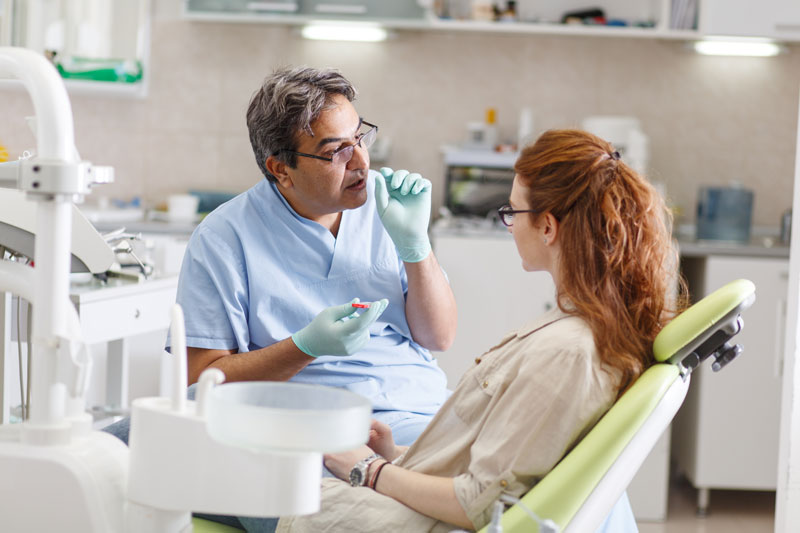Understanding Occlusal Disease: A Comprehensive Guide by Pacific Northwest Prosthodontics

As a leading prosthodontic practice in Spokane, Pacific Northwest Prosthodontics is dedicated to providing exceptional dental care to our patients. We believe that it is essential to educate our patients on the different dental conditions that they could be at risk of developing. In this blog, we will be discussing the topic of occlusal disease, a condition that is commonly diagnosed and treated at our practice.
What is Occlusal Disease?
Occlusal disease, also known as occlusal disorder, refers to the misalignment of teeth and the way they fit together (occlusion). When teeth and jaws are not aligned correctly, it can lead to a range of oral health problems, such as tooth damage, gum disease, and jaw pain. Occlusal disease can affect individuals of all ages and cause discomfort or pain that interferes with daily activities.
Signs and Symptoms of Occlusal Disease
Understanding the signs and symptoms of occlusal disease is critical to identifying and treating the condition early. Some common indicators of occlusal disease include the following:
1. Tooth Wear- Teeth may show signs of grinding, fracturing or erosion.
2. Chipping or Cracking- Teeth may chip or crack more frequently
3. Headaches and Jaw Pain- Frequent headaches, neck, and jaw pain are possible symptoms of Malocclusion.
4. Tooth Sensitivity- Tooth sensitivity or pain resulting from temperature changes
5. Loose Teeth- Mobile teeth or teeth that move in the mouth is indicative of advancing periodontal disease.
6. Jaw Malalignment- Misaligned jaws may cause difficulty in chewing or swallowing and could be indicative of TMJ.
Causes of Occlusal Disease
There are several causes of occlusal disease. Some of the most common factors include:
1. Tooth Loss- When teeth are lost, it changes the way the remaining teeth are united, leading to occlusal problems.
2. Tooth Wear- Tooth wear caused by acidic food or drinks, toothbrush abrasion, or gum disease can lead to incorrect tooth alignment.
3. Trauma- A physical injury to the mouth or jaw may cause alignment issues, leading to occlusal disorder.
4. Genetic Factors- Poor bites are sometimes hereditary.
Diagnosis of Occlusal Disease
Diagnosis of occlusal disease begins with a comprehensive dental review. Your prosthodontist will perform an extensive examination of your teeth, jaw, and facial muscles. They may also take X-rays or 3D scans of your jaw and teeth to ascertain the correct dental status. By conducting tests like bite analysis and examining related symptoms, your dentist can determine whether you have occlusal disorder or not.
Treatment of Occlusal Disease
At Pacific Northwest Prosthodontics, we create an individualized treatment plan for every patient diagnosed with occlusal disorder. Treatment can include any of the following:
1. Occlusal Adjustment- Reshaping of the teeth to ensure they mesh together correctly.
2. Splints or Night Guards- These custom-made apilances reduce pressure and offer stability to damaged teeth
3. Restorative Dentistry- Dental procedures such as crowns, bridges and dental implants can repair damaged teeth and provide support to surrounding teeth.
4. Orthodontics- Orthodontic treatment like Invisalign and traditional braces to realign teeth/jaws and correct occlusal disease
Why Choose Pacific Northwest Prosthodontics for Your Occlusal Disease Treatment
At Pacific Northwest Prosthodontics, we are committed to delivering exceptional dental care to our patients. Dr. Michael Brooks and Dr. Michael Johnson specialize in prosthodontics and the treatment of occlusal disease. Our team of highly skilled and trained professionals are dedicated to creating personalized treatment plans for our patients to achieve optimum oral health.
Conclusion
We hope this blog has helped you understand what occlusal disease is, its signs and symptoms, causes, diagnosis, and treatment options. If you have any concerns regarding your dental health or suspect you may have occlusal disorder, please contact Pacific Northwest Prosthodontics in Spokane, WA. Our team of prosthodontists will provide you with comprehensive care, ensuring that you receive individualized treatment and ultimately attain optimal oral health. Call us at (509) 796-0885 or visit us online to schedule an appointment today.


